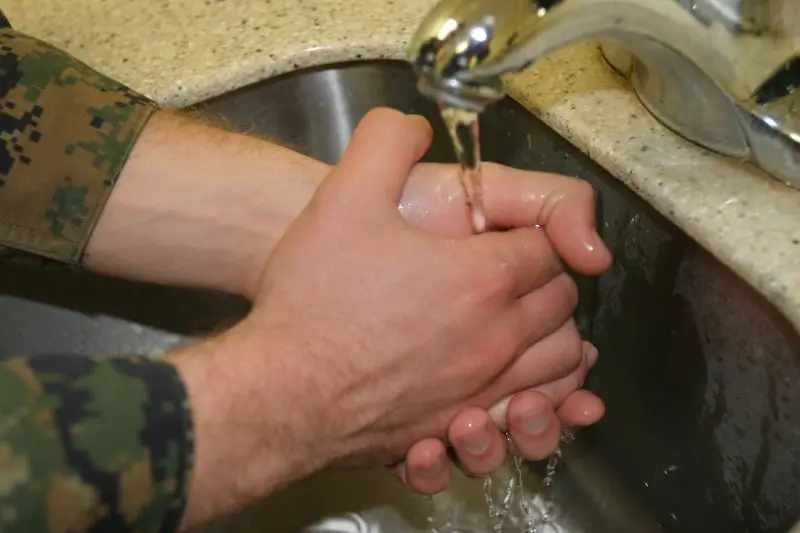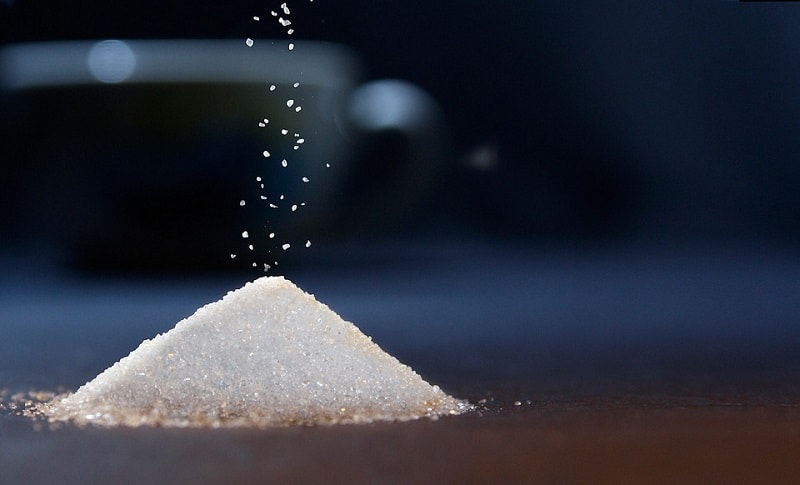Some people feel the silky or smooth feeling of soft water between their fingers and think that it is too soft. But that’s just not the case, and here’s why.
Can a water softener make water too soft? A water softener can only bring water hardness down to 0. Water can either be soft or have
What are the hard minerals that make water hard?
Calcium and magnesium are the primary minerals found in water that make it feel hard, a properly set water softener will remove the calcium and magnesium ions, making the water free of hardness or in other words, soft.
Is the slippery feeling of soft water from soap?

Some people that are not used to soft water may feel that the water is too soft when they think that the soap they just used has not rinsed away from their skin.
In fact, that slick or silky feeling that they are feeling is simply the oils in their skin sliding over water that is absent of hardness. There is a thin layer of oil on both areas of your skin with a layer of soft water separating them, and as we all know, water and oil do not mix.
Can you make a water softener remove only some of the hardness?
Unfortunately not. A water softener will attempt to remove all of the hardness that is in the water until its capacity has been reached.
In other words, the water softening resin that is inside the water softener will remove any and all hardness that is in the water until it is totally overwhelmed with hardness and can’t remove any more.
Think of this process a bit like a sponge, a sponge will soak up as much water as it possibly can, but when it is fully saturated with water, it simply will not absorb any more.
What if I set it to use less salt so it leaves some hardness behind?
This is a common question from people who do not like their water to be totally soft. But reducing the dose of brine that is used to remove the hardness from the softening resin will only result in you running out of soft water sooner make your softener need to regenerate more often.
Whatever amount of resin that gets cleaned off of hardness by the smaller dose of brine will then remove all the hardness that it can and still produce soft water coming out of the system until your water softener resin is full of hardness to its maximum capacity.
Also, if you choose to reduce the amount of time that the water softener regenerates, the same thing will happen. Water softening resin will remove the hardness completely, and then your water will become hard very quickly.
Is my water softener adding too much salt, making the water feel too soft?

If your water softener is working properly, it should be leaving behind very little salt in your water after it goes through its regeneration cycles. If you are noticing white staining on your water fixtures that looks like it is hard water stains but it washes off easily with just a bit of water, it may be because of extra salt in your water.
If you are getting very salty water after your water softener regenerates, it is not because there is too much salt in the salt tank or because of the type of salt that you are using. It is because your water softener did not completely rinse out the brine that is used to remove the hardness from it’s softening resin.
But this usually will not be mistaken as soft water because the amount of salt in the water would have to be very high for it to feel different to the touch.
And the water should not have a large quantity of salt in it for a long period of time as the leftover brine in your water softeners tank should rinse away in just a few minutes by running your water.
Sometimes a well can get contaminated with excessive salt from road salting during winter months or simply a change in your water supply but you will not likely feel too much difference on your skin. But you may be able to taste it.
If your experiencing excessive salt in your water, call an experienced water treatment specialist to test your water and make sure your water softening system is working correctly.
Why does my softened water taste salty?

To better understand this, let’s better understand just what’s going on inside a water softener.
When the water softener is not doing its regeneration process, it is pretty much just a large tank that water flows in and out of.
Normally, water comes into the top of the tank and flows down to the bottom and then back up and out through a long tube that goes from the bottom all the way to the top.
Inside this tank is something called water softening resin. When hard water flows through this resin the calcium and magnesium that is in the water, and give it that hard feeling will cling to the resin, much like static electricity will hold a balloon to the ceiling after you rub it on your hair.
As the water goes through this resin it will remove as much hardness as it possibly can until none is left in the water. This is why the water should normally come out of the softener perfectly soft with zero hardness in it.
Next, when the resin has removed as much hardness as it can we need to remove the harness from the resin so that it can remove more hardness from the water. It does this by running brine (saltwater from the salt tank) over the resin.
When the brine comes in contact with the softening resin, the sodium ions in the brine solution will take the place of the hardness that is on the resin as the resin has more attraction to the sodium ions than the hardness. Then the hardness is rinsed away with the brine solution, leaving the sodium ions behind.
Once the brine solution is rinsed away, clean water is then used to rinse away the sodium ions from the resin leaving them clean and recharged, ready to remove more hardness from the water that will be going into the house.
Does your water seem to have a lot of salt in it? Understand more about why it does from my article Why does my water taste salty in the morning?
How hard can water be?
Although water does not have different levels of softness, the amount of hardness in water is commonly referred to as being slightly hard, hard, and very hard. These descriptions of how hard water is will vary depending on the region that you are discussing.
In nearly all areas, slightly hard water is considered to be water with less than seven GPG or Grains Per Gallon. The reason this is referred to as being only slightly hard water is that this amount of hardness is generally not a regular problem with household fixtures or damaging to hot water systems.
Water that is referred to as simply hard (up to around twenty grains per gallon) has enough calcium and magnesium in it to cause a build-up inside hot water heaters which make them less efficient and in time they will need to be replaced.
Hard water will leave noticeable deposits on water fixtures, shower doors and clog showerheads and sink aerators. This is why it is highly advisable to treat water that is anything above seven grains per gallon.
Very hard water is not very common but it can be found in nearly any area.
Very hard water of twenty grains per gallon or higher can still be treated by a common water softener if set correctly.
A smaller capacity system will have to perform its regeneration process more often than a larger one, so be sure to accurately test your water’s hardness to help you determine which system size will work best for you.
Simply put, soft water is water that has 0 hardness in it and water cannot have a hardness less than 0. If minerals get into the soft water, it will then be considered to be hard water. Water is sometimes called very hard if it has lots of minerals in it but it can not be too soft.


